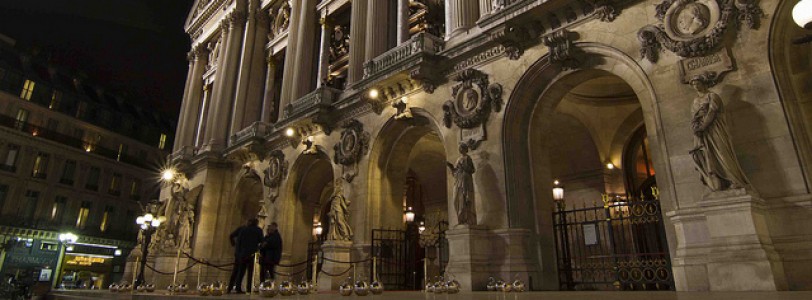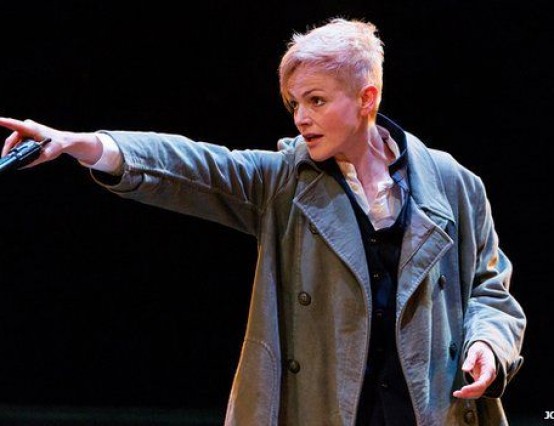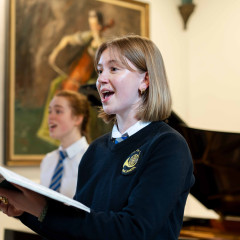Artistic and cultural exploration has always claimed a role of challenging the nature of our world, never letting us become complicitous. In a climate where our political landscape grows ever more tumultuous it has certainly been a saving grace.
In recent years there has been an explosion of this commentative culture, with our engaged and politically curious youth helping to popularize both the racially-charged musical Hamilton as well as the terrifyingly familiar “Handmaid’s Tale” TV adaptation, allowing art to hold a mirror up against our world. It is certainly reassuring to see fellow teenagers engage with progressive forms of art which holds a mirror up against our world in order to break their perceived political silence.
However, despite being one of the most historically revolutionary art forms, opera has failed to entice young, political minds into its sphere and remains, in the public eye, as a form of high-brow entertainment for middle-class elite.
In the V&A’s latest exhibition “Opera: Passion, Power and Politics” this vision of decadence is shattered as opera’s revolutionary history is revealed. As the subversive commentary opera created centuries ago is revealed through this eclectic exhibition, we are served an important reminder as to how opera is more relevant than ever today, and how its current position of gentrification demeans its foundations.
Opera’s long standing tradition of political commentary is integral to the V&A’s exhibition, with a spot-lit, meandering path leading you through seven European cities, and the revolutionary messages Opera has spread throughout the centuries. The path is accompanied by a high-tech sound system, in which excerpts from the opera’s play through headphones according to what you are seeing, creating provocatively immersive visual and aural experience.
Starting with the introduction of the first opera in 17th century Venice (Monteverdi’s ‘L’incoronazione di Poppea’) the exhibition tells of the social variety of the genre’s origins, with Monteverdi’s production being the first public opera in Europe, allowing a range of social classes to experience this art-form. From Venice to Vienna, the exhibition leads us on a musical narrative of social mobility, with Mozart's ‘Le Nozze di Figaro’ being the first opera to portray characters from the servantile class as complex protagonists, rather than as secondary parody figures.
This exhibition quickly displays the complex and important links between these pieces, and its examination of the history of opera reveals a narrative of the art forms position throughout the centuries as being politically abrasive. The challenges to social dichotomies both Monteverdi and Mozart’s work presented certainly demonstrates an unexpectedly humble background to opera.
Leading into 19th century Milan, opera is shown to have played a far more direct role in revolutionary events. Verdi’s ‘The Chorus of the Hebrew Slaves’ from his opera ‘Nabucco’ became such a defining anthem of the Italian unification movement that it is still a significant aspect of modern Italian nationalism. The impassioned response of Italian Risorgimento fighters to Verdi's operas often prompted fights with occupying Austrian troops, foreshadowing future decades of consistent revolutions across Italy. Walking through this section of the exhibition, a passionate rendition of Verdi’s chorus, accompanied by distanced gunshots and shouts of revolution, plays through our individual headphones; directly revealing a poignant commentary on the direct influence the arts can have on our political landscape.
With such a history of mobility and revolution, it is not difficult to imagine the ease in which opera could use its artistic powers to create powerful commentary on our current world; yet younger audiences appear to be seeking out other forms of culture to replicate the position opera held in previous centuries. Its modern legacy of expense and luxury means that whilst whilst its history evidences exciting prospects for our politically minded youth, there are irrefutable barriers preventing opera from reviving its influence.
It must be noted that many prominent opera companies have taken steps to modernise themselves to counter the idea that opera is only for a middle-class, older audience. The introduction of both screened subtitles during performances and the transference of opera onto the National Theatre Live platform, allowing productions to be broadcast in cinemas nationally, has certainly improved accessibility.
However, the larger question of wealth, and even the certain atmosphere of pomp which surrounds opera and the stereotype of its typical audience, has yet to be answered. Indeed, with the excessive cost of tickets, this art form only pushes itself further into the boundaries of gentrification; abandoning the artistic curiosity of the entire youthful demographic and restricting the powerful scope opera has held for generations.
With its revolutionary history being gradually abandoned, the true artistic potential of opera is overlooked. Whilst exhibitions such as the V&A’s demonstrate the significant political history of opera, and our current political climate being an exciting backdrop for the form to regain its incendiary influence, it is clear an internal revolution within the art-form needs to occur before young people are truly able to connect with opera again.











This is a great piece, Isabella!